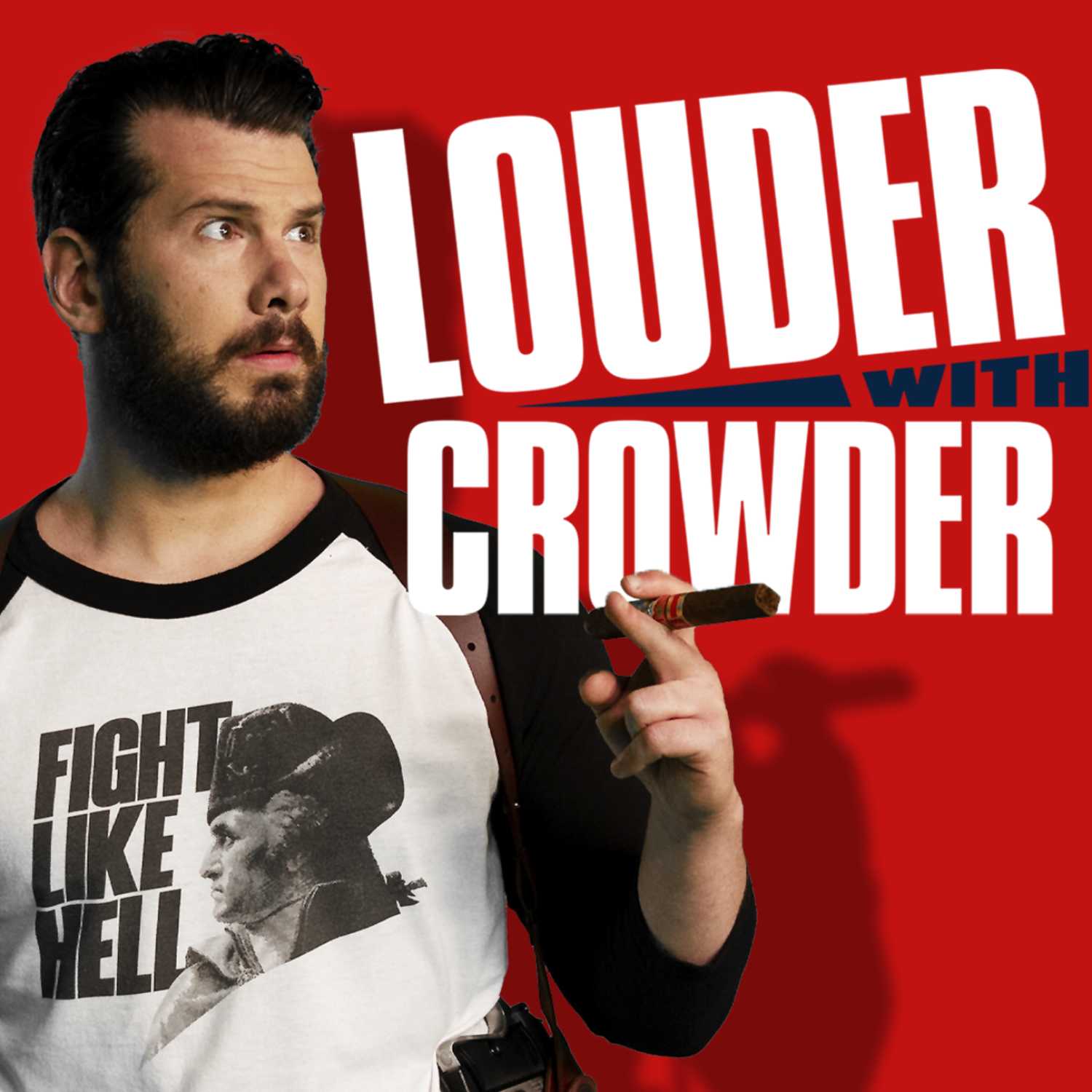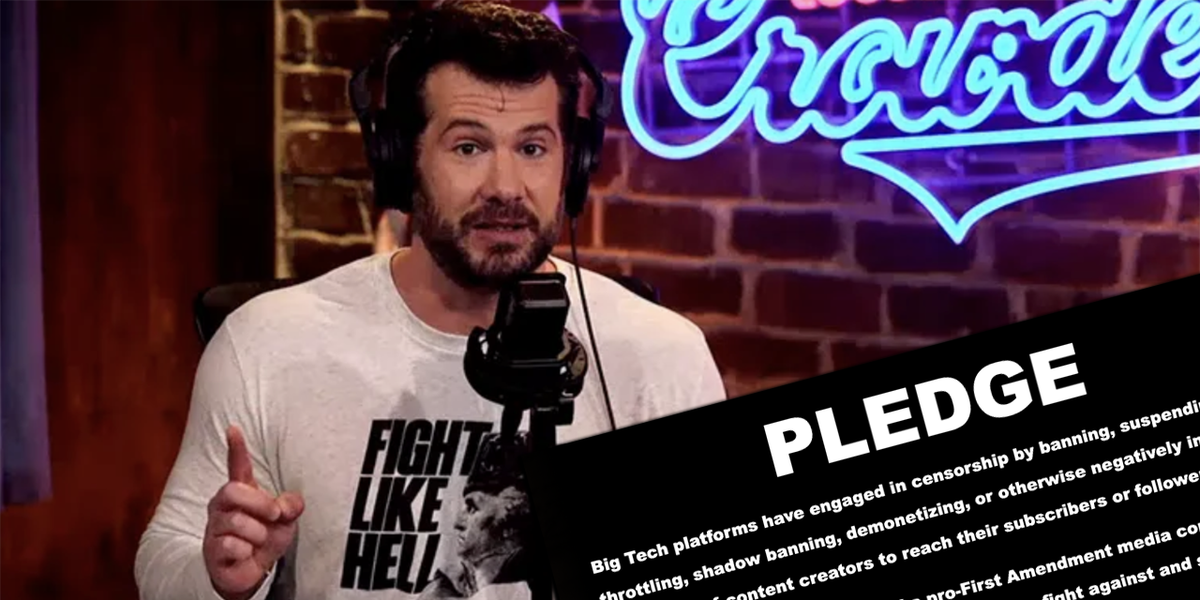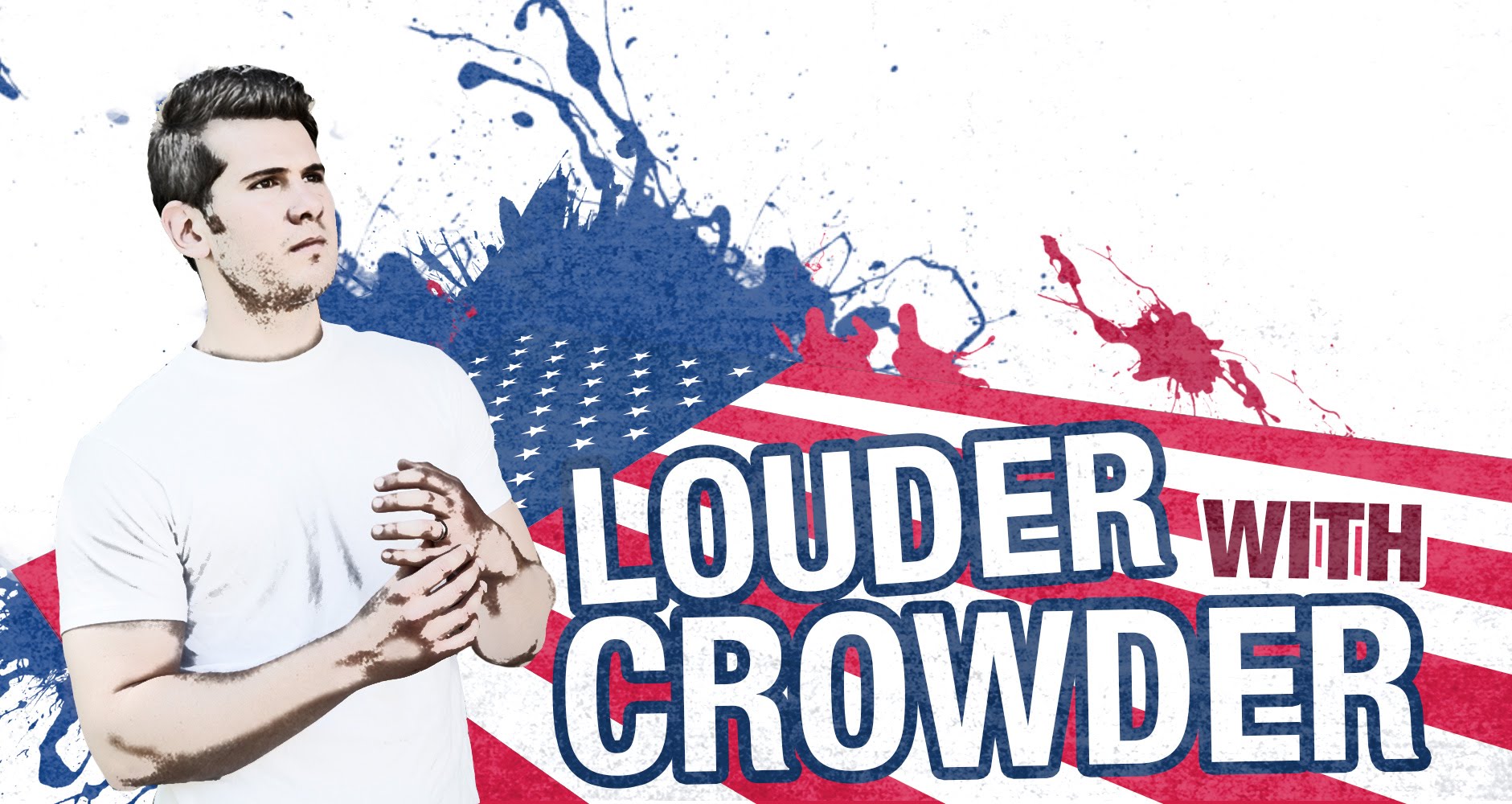1/4 Black Garrett Louder With Crowder: A Deep Dive Into The Controversy And Conversation
There’s a lot of noise surrounding the phrase “1/4 black Garrett louder with Crowder,” and it’s sparked debates across the internet. But what does it really mean? This phrase has become a lightning rod for discussions about race, identity, and cultural dynamics. If you’ve been scratching your head trying to understand the context, you’re not alone. Let’s break it down and explore the layers of this conversation.
At its core, the phrase stems from a viral moment involving Garrett Smith, a YouTuber and content creator, who found himself at the center of a heated exchange with political commentator and media personality, David Crowder. The interaction quickly went viral, sparking conversations about racial identity, privilege, and representation. It’s not just a random phrase—it’s a reflection of deeper societal issues.
As we dive into this topic, we’ll explore the background, the players involved, and the implications of this moment. Whether you’re here to understand the context, learn more about the individuals involved, or simply want to stay informed, this article has got you covered. Let’s get into it!
Read also:Wurth Louis And Company The Backbone Of Automotive Excellence
Table of Contents
- Background: What Happened Between Garrett and Crowder?
- Who Is Garrett Smith? A Closer Look at His Background
- David Crowder: Who Is He and Why Does He Matter?
- Understanding Racial Identity: What Does It Mean to Be “1/4 Black”?
- Social Media Reaction: The Internet Weighs In
- Identity Politics: The Broader Context
- Cultural Significance: Why This Moment Matters
- Criticism and Counterarguments: Both Sides of the Story
- Moving Forward: Lessons Learned and Next Steps
- Conclusion: The Importance of Dialogue
Background: What Happened Between Garrett and Crowder?
Let’s rewind to the moment that set off the firestorm. Garrett Smith, a content creator known for his bold statements and controversial opinions, found himself in a verbal sparring match with David Crowder. The exchange occurred during a live stream, where Garrett made a claim about his racial identity, stating that he is “1/4 Black.” Crowder, known for his sharp wit and unfiltered commentary, responded by challenging Garrett’s assertion, asking him to clarify and elaborate on what that means.
This interaction quickly snowballed into a heated debate, with both sides digging in on their positions. For some, it was a moment of clarity—a chance to unpack the complexities of racial identity in modern America. For others, it was just another example of performative activism gone wrong.
Breaking Down the Exchange
Here’s a quick recap of the key points:
- Garrett claims to be “1/4 Black,” citing his family lineage.
- Crowder questions the significance of this label, pointing out that racial identity is more nuanced than a simple fraction.
- The conversation escalates as both sides defend their perspectives, with Crowder emphasizing the importance of lived experience over genetic makeup.
What makes this moment so intriguing is how it taps into broader societal debates about race, representation, and authenticity. It’s not just about Garrett and Crowder—it’s about the larger conversation we’re having as a society.
Who Is Garrett Smith? A Closer Look at His Background
Before we dive deeper into the controversy, let’s take a moment to understand who Garrett Smith is. Garrett, a rising star in the world of content creation, has built a reputation for tackling controversial topics head-on. He’s not afraid to ruffle feathers, and his unapologetic approach has earned him both admirers and critics.
Garrett Smith’s Biodata
| Full Name | Garrett Smith |
|---|---|
| Date of Birth | January 15, 1995 |
| Place of Birth | Los Angeles, California |
| Profession | Content Creator, YouTuber |
| Claim to Fame | Controversial commentary on race, politics, and identity |
Garrett’s journey into the public eye began with his candid discussions about race and identity. His willingness to challenge norms and question societal structures has positioned him as a polarizing figure in the online space.
Read also:The Hamptons Music Group Your Ultimate Guide To Unleashing Melodic Vibes
David Crowder: Who Is He and Why Does He Matter?
On the other side of the debate is David Crowder, a prominent voice in political commentary. Known for his sharp wit and unfiltered opinions, Crowder has carved out a niche for himself in the world of media. His ability to tackle complex issues with humor and insight has made him a favorite among his audience.
David Crowder’s Background
Crowder’s career spans several years, during which he’s tackled topics ranging from politics to pop culture. His unique perspective and willingness to engage in difficult conversations have earned him a loyal following. When it comes to discussions about race, Crowder often emphasizes the importance of lived experience and authenticity.
His exchange with Garrett Smith is just one example of his commitment to fostering dialogue, even when it’s uncomfortable.
Understanding Racial Identity: What Does It Mean to Be “1/4 Black”?
The phrase “1/4 Black” might seem straightforward, but it opens up a Pandora’s box of questions about racial identity. At its core, racial identity is about more than just genetics. It’s about culture, experience, and how one identifies with a particular community.
Key Factors in Racial Identity
- Genetic makeup: While genetics play a role, they’re not the sole determinant of identity.
- Cultural connection: How one engages with and participates in a cultural community.
- Lived experience: The day-to-day realities of navigating life as a member of a particular racial group.
For many, the idea of being “1/4 Black” raises questions about authenticity and belonging. Is it enough to have a fraction of Black ancestry, or does one need to actively engage with Black culture and community to claim that identity?
Social Media Reaction: The Internet Weighs In
When Garrett’s exchange with Crowder went viral, the internet was quick to weigh in. Social media platforms were flooded with opinions, memes, and analyses of the interaction. Some users praised Garrett for speaking his truth, while others criticized him for what they perceived as performative activism.
Here’s a snapshot of the reactions:
- Supporters of Garrett argued that identity is personal and that no one should dictate how someone identifies.
- Critics of Garrett pointed out that racial identity is about more than just genetics—it’s about lived experience and cultural connection.
- Neutral observers highlighted the importance of having open and honest conversations about race, even when they’re uncomfortable.
The diversity of opinions reflects the complexity of the issue and underscores the need for ongoing dialogue.
Identity Politics: The Broader Context
The Garrett-Crowder exchange is just one example of the broader conversation about identity politics in America. In recent years, discussions about race, gender, and identity have taken center stage, sparking both progress and controversy.
Identity politics refers to the way individuals and groups organize around shared identities to advocate for their interests. While it has led to greater representation and inclusion, it’s also been criticized for creating division and polarization.
Key Takeaways
- Identity politics can be a powerful tool for marginalized groups seeking change.
- However, it can also lead to misunderstandings and divisions if not approached thoughtfully.
- The Garrett-Crowder exchange highlights the need for nuance and empathy in these discussions.
Cultural Significance: Why This Moment Matters
The phrase “1/4 Black Garrett louder with Crowder” might seem like just another internet moment, but it’s much more than that. It’s a reflection of the cultural dynamics at play in modern America. As society becomes increasingly diverse, questions about identity and belonging are becoming more pressing.
This moment matters because it challenges us to rethink how we approach discussions about race and identity. It reminds us that these conversations are not just about individuals—they’re about the larger societal structures that shape our lives.
Criticism and Counterarguments: Both Sides of the Story
No conversation about race and identity is complete without acknowledging the criticism and counterarguments. While Garrett’s claim to being “1/4 Black” has sparked debate, it’s also drawn criticism from those who believe it oversimplifies the complexities of racial identity.
Common Criticisms
- Some argue that Garrett’s claim reduces racial identity to a mathematical equation, ignoring the cultural and experiential aspects.
- Others point out that focusing on fractions can detract from the lived experiences of those who identify as Black.
On the flip side, Garrett’s supporters argue that identity is deeply personal and that no one should be told how to identify. They emphasize the importance of self-determination and autonomy in these discussions.
Moving Forward: Lessons Learned and Next Steps
So, where do we go from here? The Garrett-Crowder exchange offers valuable lessons about how to approach discussions about race and identity. It reminds us that these conversations are not easy, but they’re necessary for progress.
Key Takeaways
- Identity is complex and multifaceted—it’s not just about genetics or lived experience.
- Empathy and nuance are essential in these discussions.
- Open dialogue, even when uncomfortable, is key to fostering understanding.
As we move forward, it’s important to create spaces where these conversations can happen without fear of judgment or censorship. Only then can we hope to bridge the divides and build a more inclusive society.
Conclusion: The Importance of Dialogue
In conclusion, the phrase “1/4 Black Garrett louder with Crowder” has sparked a much-needed conversation about race, identity, and representation. While the exchange between Garrett and Crowder may have been heated, it underscores the importance of engaging in difficult discussions.
As you reflect on this topic, consider how you can contribute to the conversation. Whether it’s through sharing this article, leaving a comment, or simply engaging in dialogue with others, your voice matters. Together, we can work towards a more inclusive and understanding world.
So, what are your thoughts? Let’s keep the conversation going!
Article Recommendations


